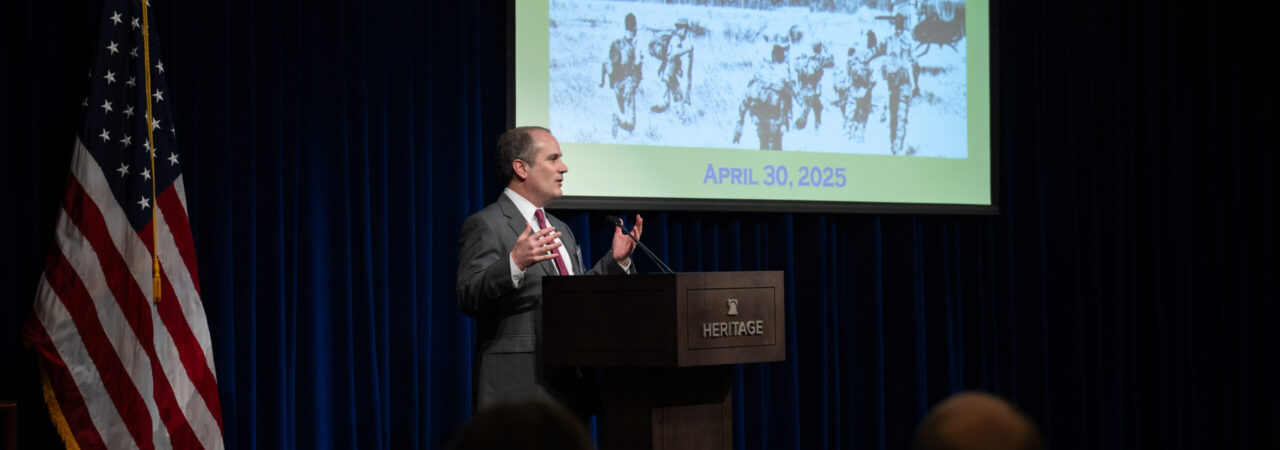Speakers discussed some of the latest research on the end of the Vietnam War and its aftermath.
.jpg?lang=en-US&width=1280&height=450&ext=.jpg)
HILLSDALE, Mich. — Hillsdale College’s Center for Military History and Strategy and Hillsdale in D.C. hosted a conference on April 30 marking 50 years after the fall of Saigon to North Vietnamese forces and the end of the Vietnam War. Leading experts on the war, including several Vietnam veterans, presented some of the latest research on the end of the war and its aftermath.
Mark Moyar, William P. Harris Chair of Military History at Hillsdale College and director of CMHS, spoke on “The War Over the Vietnam War.” He discussed the “revisionist” version of the war’s history, which challenges the “orthodox” version on many key points, including whether the war was strategically necessary and whether it was winnable.
“Orthodox school would say, ‘this war really wasn’t necessary to protect our interests.’ They tend to call it a war of choice, or if we just chose it for reasons that were not necessarily critical to our security,” Moyar said. “Revisionists would say, ‘no, this actually was essential to protecting our national security interests, hence a war of necessity.’”
Moyar argues for the revisionist account in his books “Triumph Forsaken: The Vietnam War 1954-1965” and “Triumph Regained: The Vietnam War 1965-1968.” He is currently working on the third and final volume, “Triumph Betrayed: The Vietnam War, 1969-1975.”
George J. Veith, author of “Black April: The Fall of South Vietnam, 1973-75,” spoke on “The Fall of Saigon.” Veith argued that the PAVN — the People’s Army of Vietnam — succeeded in 1975 because the North Vietnamese had learned from the mistakes of their prior offensives.
“The hallmark of PAVN tactics in ’68 and ’72 was inflexibility,” Veith said. “They could make a plan, and they could follow the plan, but they could not adjust on the fly like a Western unit could. But that had changed by ’75. They had learned their lessons. They were able to learn how to fight in combined arms.”
James Willbanks, professor emeritus at Command and General Staff College spoke on “The American Withdrawal,” and John Del Vecchio, author of “The 13th Valley,” spoke on “Truth in the Fiction of the Vietnam War.”
A panel on “Legacies of Vietnam” featured Wilfred McClay, Victor Davis Hanson Professor in Classical History and Western Civilization at Hillsdale College; Bradley J. Birzer, Russell Amos Kirk Professor in American Studies at Hillsdale College; Andrew R. Finlayson, author of “Killer Kane: A Marine Long-Range Recon Team Leader in Vietnam, 1967-1968;” and Phillip Jennings, author of “The Politically Incorrect Guide to the Vietnam War.”
About the Center for Military History and Strategy
The Center for Military History and Grand Strategy (CMHS) studies warfare from all times and places to better our comprehension and military readiness. Its focus lies in academic research that joins military history with insights from strategic thinkers throughout history. By providing an education in the study of war and strategy, the CMHS strives to prepare scholars, officers, and policymakers to preserve those “inestimable blessings” of liberty in a world that continues to ignore the lessons of the past. For more information, visit warhistory.hillsdale.edu.